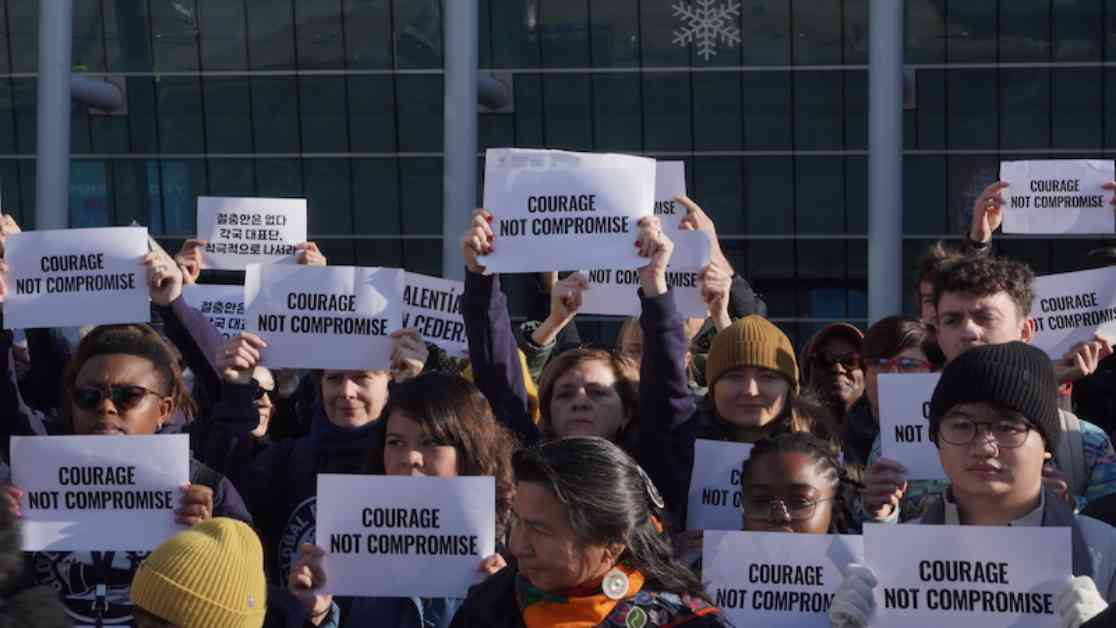Plastics Pact Text Reveals Divide on Production Cuts
As the plastic pollution talks in Busan reached a critical juncture, tensions ran high between high-ambition countries pushing for production cuts and petrostates resisting compromise. The latest draft text of the global treaty on plastic pollution has left the fate of our planet hanging in the balance.
Calls for Compromise
Juan Carlos Monterrey Gómez, Panama’s special representative, minced no words in urging petrostates to step aside if they were unwilling to compromise. The divide between the coalition of ambitious countries advocating for production cuts and oil and gas-producing nations like Saudi Arabia, Russia, and Iran has brought the negotiations to a standstill.
Stark Choices
Chairing the talks, Luis Vayas Valdivieso of Ecuador introduced a new draft text with a binary choice on plastic production cuts: either no restrictions at all or a global target to reduce primary plastic polymers’ production to sustainable levels. The petrostates argue that manufacturing curbs are beyond the treaty’s scope, despite the original resolution’s mandate to address the full lifecycle of plastics.
High Ambitions
The high-ambition group, comprising 102 countries, has made concessions by dropping stricter targets and calling for measures across the entire plastic lifecycle. Panama’s Monterrey Gómez emphasized the need to move beyond red lines and avoid a superficial treaty focused on recycling.
Appeals for Action
Andrew Yatilman, representing the Federated States of Micronesia, highlighted the devastating impact of plastic pollution on economies reliant on fishing. Campaigners, through powerful visual displays and vocal protests, emphasized the urgency of decisive action to protect the planet from irreversible harm.
Finance as a Stumbling Block
Beyond production cuts, the negotiations also grapple with divergent views on financing mechanisms. Developing countries seek a new multilateral fund financed by developed nations, while richer countries prefer a mechanism within the Global Environment Facility (GEF) with voluntary contributions.
Hope for Progress
Despite the challenges, negotiators remain hopeful that a breakthrough is within reach. China’s potential role in bridging the gap with petrostates and finding common ground on plastic production is seen as a critical step towards a robust agreement. The need for reliable and predictable financial support is paramount to ensure developing countries can implement stringent measures on production and waste management.
As the talks enter their final phase, the world watches anxiously to see if global leaders can rise above differences and forge a path towards a sustainable future for all. The fate of our planet hangs in the balance as delegates navigate the complexities of plastic pollution and strive for a meaningful agreement in Busan.














